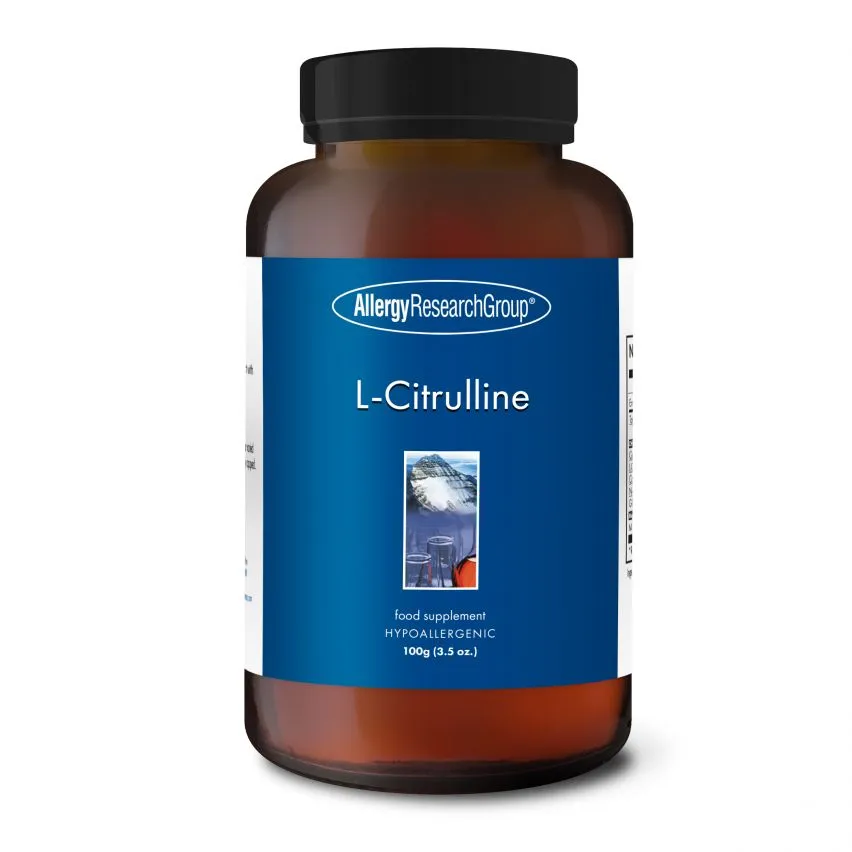L-citrulline is a naturally occurring amino acid. It is found in some foods like watermelons and is also produced naturally by the body. Its name is derived from citrullus, which is the Latin word for watermelon. It is a key intermediate in the urea cycle, the pathway by which we excrete ammonia by converting it into urea.
L-citrulline, like L-arginine and L-ornithine, is involved in the metabolism of ammonia waste in the urea cycle, and in the vasodilation pathways. Carbamoyl phosphate is converted to citrulline in the ornithine carbamoyltransferase reaction, and when endogenous supplies of ornithine carbamoyltransferase are insufficient, supplemental L-citrulline may be useful.
Citrulline is also produced as a byproduct of the enzymatic production of nitric oxide from the amino acid arginine, catalysed by nitric oxide synthase.
L-citrulline is used by mouth for heart failure and improving athletic performance. It is also used for sickle cell disease, erectile dysfunction, high blood pressure in the lungs, and many other conditions. But there is limited scientific research to support these other uses.
Ingredients
L-Citrulline.
Directions For Use
As a food supplement, 1 teaspoon with a meal.

 Cart(
Cart(










